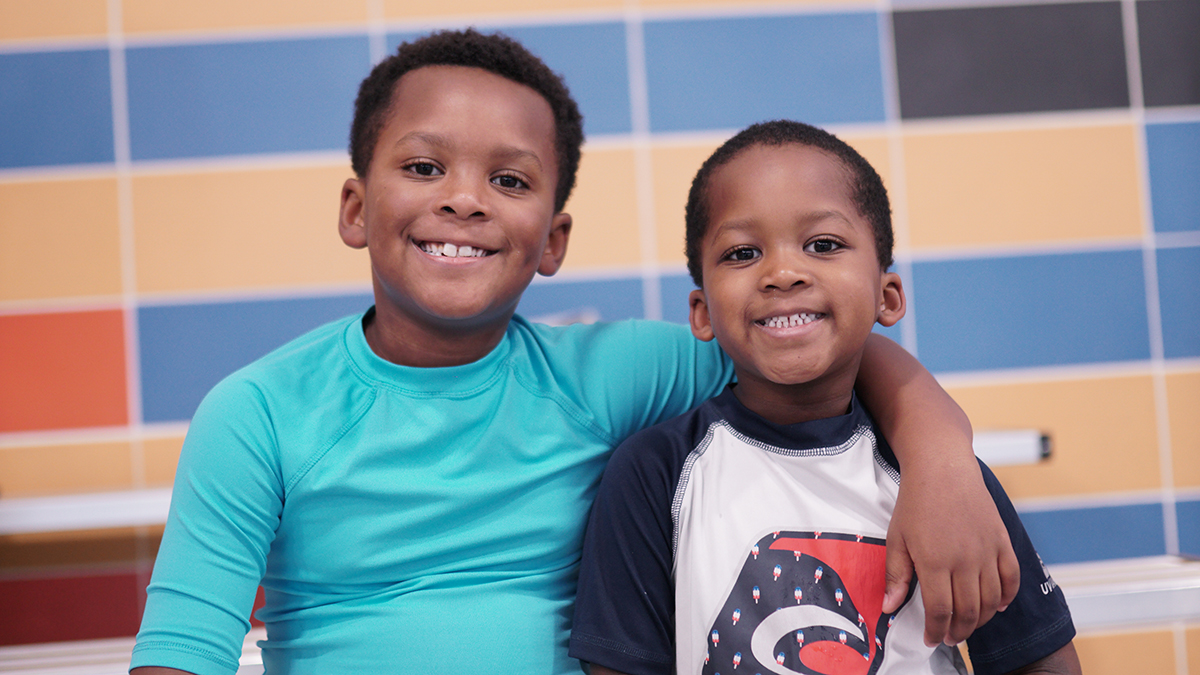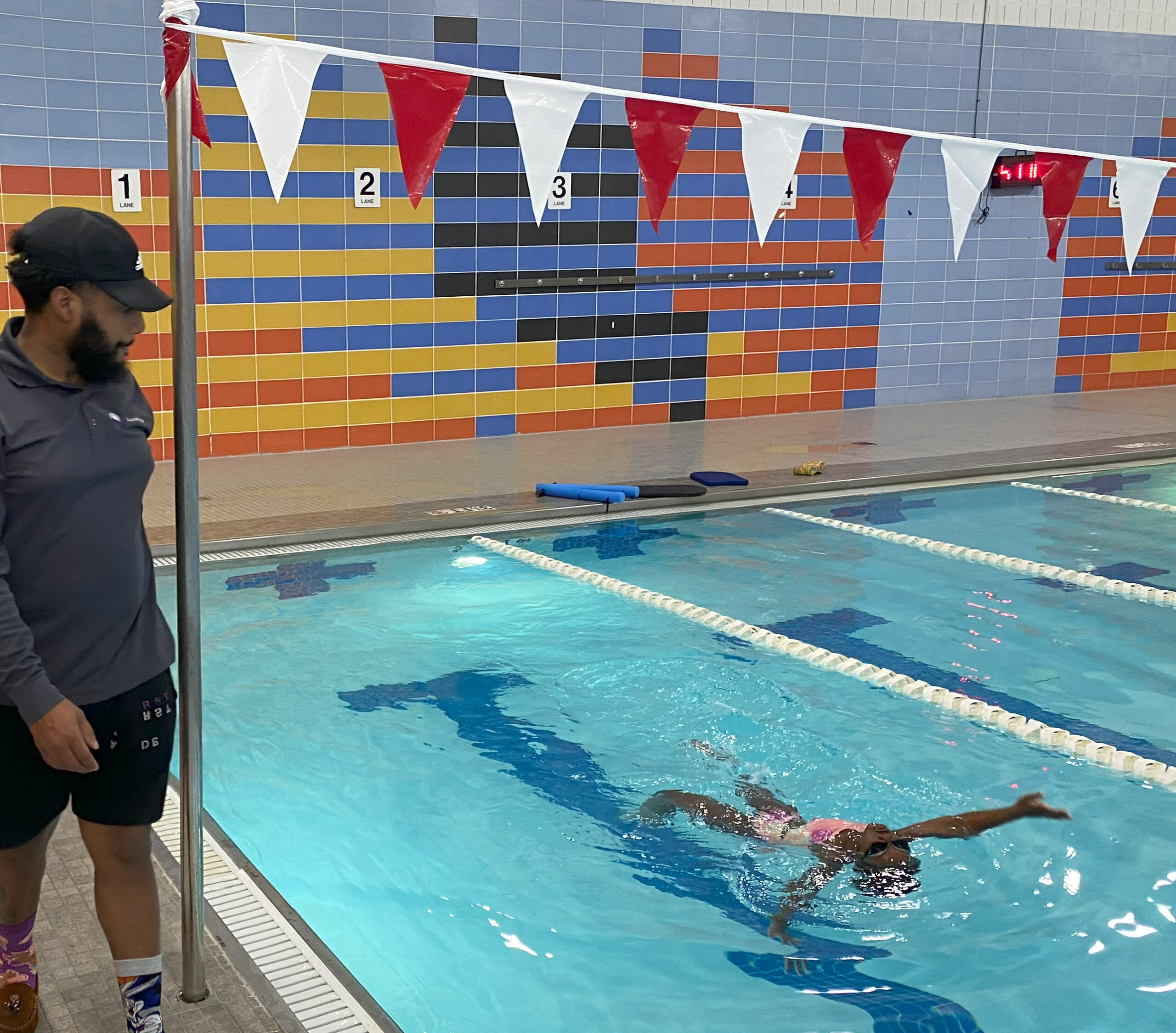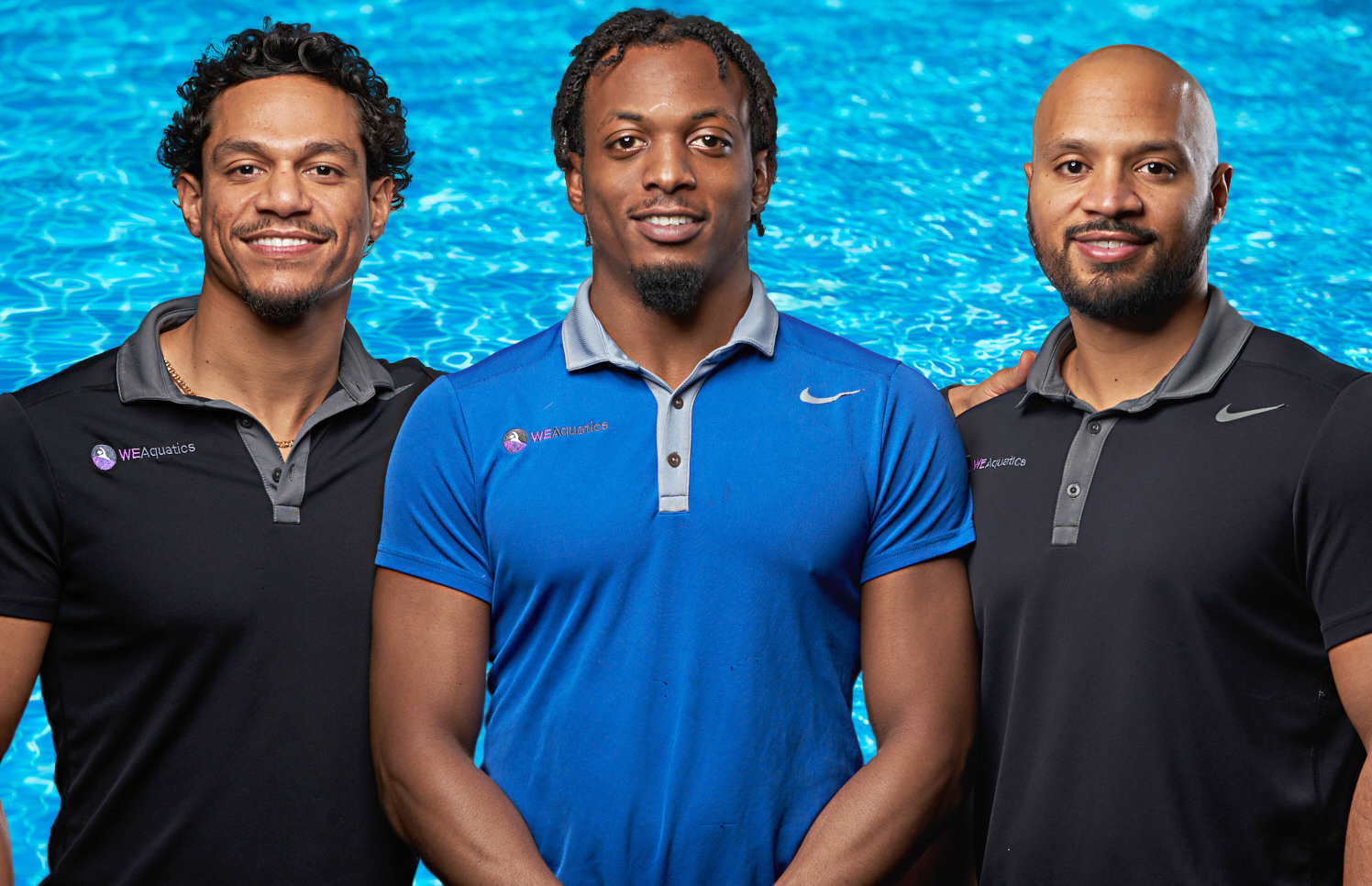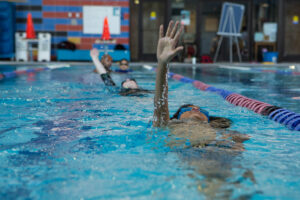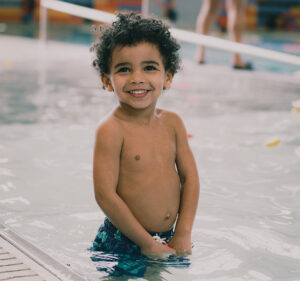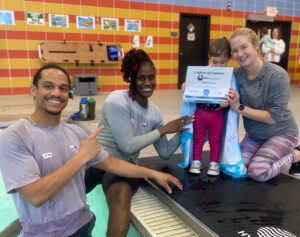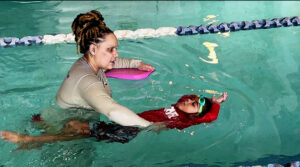WeAquatics Promotes Swimming and Essential Survival Skills in the DMV Area
For generations, a damaging stereotype has persisted that ‘Black people don’t swim.’ While false, this myth still impacts the Black community today by discouraging aquatic activities.
Programs at WeAquatics seek to break these stereotypes by providing a safe place for people of all ages to gain essential water survival skills, learn to swim properly, and provide the foundation for a lifelong love of swimming.
Why ‘Black People Don’t Swim’
This myth comes from periods when segregation and racism actively excluded Black people from pools and beaches.
Reduced access to swimming pools led many Black youths to miss out on survival lessons and opportunities to learn to swim properly.
While many Black people come from cultures with strong aquatic traditions, discriminatory practices cemented unfair assumptions that still linger today.
Black parents are three times more likely to fear water than white parents. Without healthy exposure to swimming, some Black parents became overprotective around water (pools, beaches, lakes and rivers). While well-intentioned, this contributed to generations growing up with fear of water and/or water related activities.
Learning to swim while young is a life skill that will follow individuals throughout their lives, like riding a bike. And the more you practice, especially at a young age, will determine how well you perform over the years.
The Negative Impact on Black Families
65% of Black children say they want to swim more than they currently do. But when parents have little to no swimming skills, their kids are less likely to develop these essential water safety skills. This contributes to 64% of Black children not having the ability to swim, perpetuating the cycle.
There are major death rate disparities between races. The general drowning death rate among Black children is 2.6 to 3.6 times higher than that of white same-aged children. When it comes to the swimming pool, Black children aged 10-14 have a death rate of 7.6 times higher than white kids of the same age.
This is an apparent, documented problem the Black community faces. But there is hope.
A Positive Legacy Emerges
Parents can have a positive impact on their children’s aquatic success. Children are 2.7 times more likely to swim well when they swim with their families! Frequent exposure to bodies of water helps to break down stereotypes.
Seeing Black swimmers like Simone Manuel and Cullen Jones excelling at elite levels promotes a healthy representation of children without Black swimming role models who may seek a future in competitive swimming.
Their success stories and more Black coaches entering the sport are vital to shattering longtime biased assumptions.
WeAquatics prioritizes Black representation with its coaches and instructors. Young Black students seeing instructors who look like them in the water helps replace outdated assumptions with new possibilities.
WeAquatics Shatters Stereotypes & Myths.
Because swimming is a life skill, it’s critical to have consistent exposure —and develop lifesaving water skills— at a young age. Even for older adults who have shied away from swimming and aquatic activities, learning basic survival skills is crucial to be prepared in the event of an emergency. Learning to swim properly through a swim program reduces the risk of drowning by 88%.
More adults have signed up for the Learn-to-Swim program at WeAquatics in recent years. Many of these adult students are overcoming their fear of water for the first time! By learning to swim as adults, they ensure the next generations will grow up with swimming as a regular activity.
With dedication to diversity, WeAquatics confronts this crucial aspect of swimming that has become a stumbling block. Our experienced and certified instructors provide a welcoming environment where Black youth gain lifelong safety skills and discover the joy of aquatic activities that will be passed on to the next generation.

